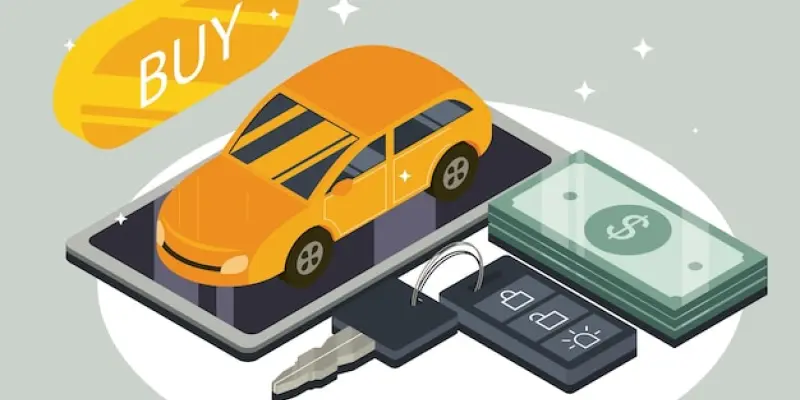In the rapidly evolving realm of digital transactions, the automotive industry is witnessing a transformative shift with the advent of real-time payment solutions. This development potentially offers consumers a faster and more secure method to complete vehicle purchases. Carvana, a prominent online used-car dealership, has recently integrated Plaid’s Request for Payment (RFP) technology with The Clearing House’s Real-Time Payment (RTP) network. This integration significantly enhances payment processing, reducing the time and risk associated with traditional methods. By allowing instant payments, companies like Carvana aim to streamline the purchasing process, addressing both business efficiency and customer satisfaction. However, the effectiveness and future expansion of such systems depend on broader adoption among financial institutions and the resolution of certain limitations.
The Mechanism of Real-Time Payments in Car Purchases
Real-time payment technology is redefining how transactions are conducted in the automotive sector. Carvana’s implementation allows customers to connect their bank account to their Carvana account, facilitating instant fund transfers. This system significantly reduces the time gap traditionally required for electronic payments to process, providing a quicker turnover for vehicle acquisition. Through RFP technology, businesses can request payments that are confirmed almost instantaneously, which is a substantial improvement over the ACH transfers that can take from several hours to a few days.
The process begins when the customer opts for the pay-by-bank method during the payment verification stage. Customers are prompted to link their bank accounts directly through their banking app, giving the necessary consent for the transaction. This quick verification allows the committed amount to be transferred and ensures a higher degree of transaction security. Not all banks, however, have adopted RTP; this poses a challenge for universal adoption. Currently, the largest banks have started implementing this technology, whereas smaller institutions are still integrating these capabilities, potentially hindering the transaction flow for some consumers.
Industry Adoption and Future Prospects
The introduction of real-time payment solutions addresses two critical pain points in the auto industry: processing time and security concerns. Major firms such as Truist and Credit Acceptance Corporation have embraced this technology, acknowledging the advantages of diminished fraud risks and expedited transactions. Additionally, in recent years, companies like TD Auto Finance and Lithia Motors have launched RTP capabilities, marking a notable trend towards modernizing payment processes.
Carvana has been leveraging Plaid’s technology beyond transactions. For years, the dealership has utilized Plaid’s services to link bank accounts for verification purposes, which assists in underwriting by analyzing deposit flows as a measure of income. This comprehensive integration indicates a broader trend; there’s potential for this technology to influence a range of operations beyond initial vehicle purchase transactions. Plaid’s exploration of broader applications within the automotive industry highlights the probability of similar integrations becoming standard practice. Though Carvana stands as a pioneer with Plaid’s RTP utilization for car purchases, continued collaboration between financial entities and technological advancement seems inevitable.
Conclusion: The Future Landscape of Automotive Transactions
Real-time payment (RTP) technology is transforming how transactions are managed in the automotive industry. Carvana has adopted this system, enabling customers to link their bank accounts directly to their Carvana accounts. This facilitates instant fund transfers, drastically cutting down the time traditionally needed for electronic payments. This swift process allows quicker vehicle purchases. Businesses can use RTP technology to request and confirm payments almost immediately, which marks a significant advance over traditional ACH transfers that may take several hours to days to complete.
The customer journey starts when they choose the pay-by-bank option during payment verification. They are then asked to link their bank accounts using their banking app, granting permission for the transaction. This speedy verification ensures the committed funds are transferred securely. Despite its benefits, not all banks have adopted RTP, which can hinder universal use. Currently, major banks are onboard with this technology, but smaller financial institutions are still working on integration, causing possible delays for some customers.

